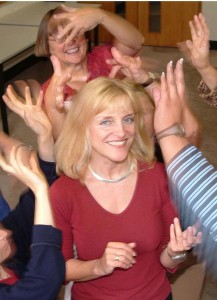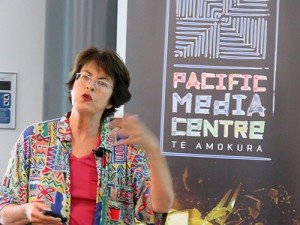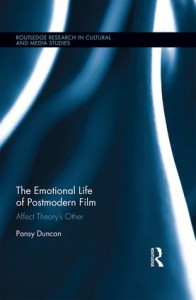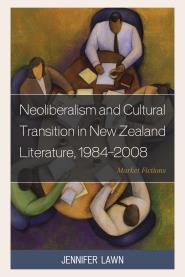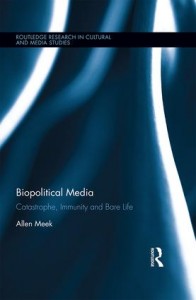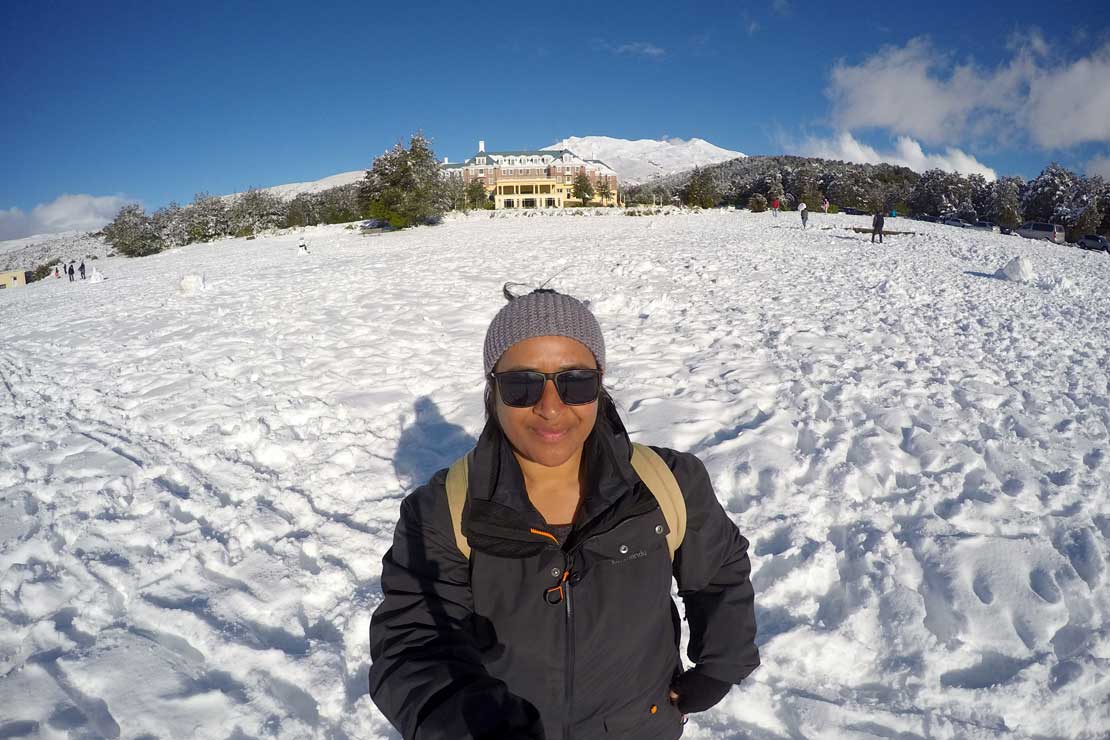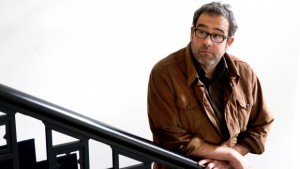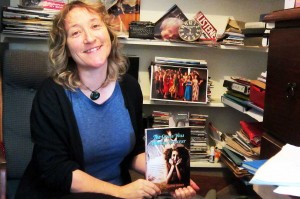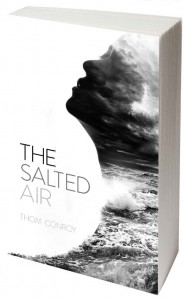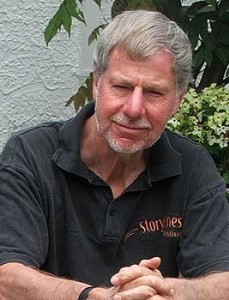Editorial
Welcome to tenth edition of NUTS NZ – the Newsletter for University Theatre Studies New Zealand. The purpose of the newsletter is to help us communicate more effectively as a community of scholars interested in Theatre and Performance. We have an interesting selection of stories and items for you in our second issue for 2016. In this issue, in our “NUTS People” segment, we profile Hilary Halba and Kiri Bell from The University of Otago. We have also included information on the upcoming symposia and conferences for the multidisciplinary research project “The Performance of the Real” at Otago University. We have two academic vacancies that have opened up at Massey University to circulate. We are also pleased to promote Marianne Schultz’s latest publication Performing Indigenous Culture on Stage and Screen. We also thought we would bring to your attention an interesting article by Associate Professor Tracey Moore (The Hartt School at the University of Hartford), entitled ‘Why Theater Majors Are Vital in the Digital Age‘ which was recently published online by the Chronicle of Higher Education. In the article Moore argues that ‘Theater (slow, communal, physical) may be the cure for what ails us in the digital world’. The article raises some important points about the value of University Theatre Majors which might be useful in our own advocacy for university theatre programmes in NZ. We plan to circulate our eleventh edition of NUTS NZ on the 12th of August, and we will need items of news by 29 July (especially an academic and postgraduate student to showcase). As always, submissions should be sent to the NUTS NZ editor Jane Marshall: j.g.marshall@massey.ac.nz
Kind regards,
NUTS NZ editors: Jane Marshall and Rand Hazou.
| Newsletter Issue |
Information Required by |
Date of Circulation |
| Issue 11 |
29 July 2016 |
12 August 2016 |
| Issue 12 |
28 October 2016 |
11 November 2016 |
NUTS PEOPLE
In each edition of NUTS NZ we profile an academic and a postgraduate student to show case “our people” and their current research/interests. In this issue we have Hilary Halba and Kiri Bell from The University of Otago. As always, NUTS NZ asked each of them to answer the following questions:
- What is your research about?
- What theatre/performances have you seen recently?
- What have you been reading lately?
Hilary Halba
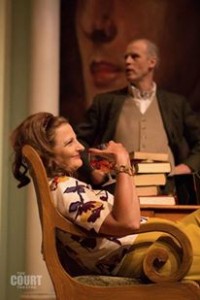
Research: My research and background are in acting and actor training, documentary and verbatim theatre, and Maori and bicultural theatre, drama and performance.
Theatre: I haven’t seen any theatre performances recently as I have been performing every night for the last two 2 months in “Winston’s Birthday,” (written by Paul Baker and directed by Lara McGregor). You could say, however, that I have watched that performance every night from the stage.
Reading: Most recently, I have been reading abstracts for the Hui & Symposium I have just co-convened.
Kiri Bell
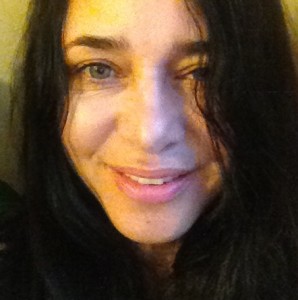
Research: I am researching a range of theatrical techniques in order to stage auto-ethnographical and biographical stories about Māori children adopted into Pākehā families through closed stranger adoption. Some of the techniques include: Māori performing arts, physical theatre, poetry, shadow play, and song. I am also researching closed stranger adoption in Aotearoa, in particular with regards to Māori children adopted into Pākehā families and the impact and consequences this form of adoption has had on adoptees. My research will culminate in a one woman, multi-media bicultural documentary play.
Theatre: Aside from seeing a number of works at Allen Hall Lunchtime Theatre, which is always interesting, entertaining and such good value for money, the other theatre I have seen lately is Paul Baker’s Winston’s Birthday at the Fortune Theatre. This play was thoroughly entertaining and, as always, Peter King’s set design was fantastic.
Reading: I am reading a number of works at the moment, and yet it seems that I am still not reading enough! I am reading Maria Haenga-Collins Master’s thesis Belonging and Whakapapa: The Closed Stranger Adoption of Māori Children into Pākehā Families, and I am reading Erica Newman’s Master’s thesis A Right To Be Māori?” Identity Formation of Māori Adoptees. I am also reading Through The Body: A Practical Guide to Physical Theatre by Dymphna Callery. I think this book is a must for all theatre practitioners.
Publications
Examining corporeal expressions of indigenousness from an historical perspective, this book highlights the development of cultural hybridity in New Zealand via the popular performing arts, contributing new understandings of racial, ethnic, and gender identities through performance. The author offers an insightful and welcome examination of New Zealand performing arts via case studies of drama, music, and dance, performed both domestically and internationally. As these examples show, notions of modern New Zealand were shaped and understood in the creation and reception of popular culture. Highlighting embodied indigenous cultures of the past provides a new interpretation of the development of New Zealand’s cultural history and adds an unexplored dimension in understanding the relationships between Māori and Pākehā throughout the late nineteenth and into the early twentieth centuries.
Conferences
The performance of the Real is a new multidisciplinary research project that is being led by Dr Suzanne Little and Assoc. Prof. Hazel Tucker at Otago University. The project has been successful in receiving funding over five years and a number of symposia and conferences have already been programmed this year including:
The Performance of the Real Postgraduate and Early Career Symposium:
June 8th – 10th 2016 Keynote speaker: Bree Hadley (Queensland University of Technology) (we are heavily subsiding this symposium to keep costs down for postgraduate students) – we are open to late submission of abstracts
Mediating the Real:
August 31st – September 2nd 2016 Keynote speakers: Misha Kavka (The University of Auckland); Allen Meek (Massey University) & Agon Hamza (Slovenian Academy of Sciences and Arts)
Performing Precarity: Refugee Representation, Determination and Discourses
21-23 November
Keynotes:
Professor Nikos Papastergiadis (University of Melbourne, Australia)
Professor Suvendrini Perera (Curtin University, Perth, Australia)
Registration is via the website and there are more details on the site about the theme and who is involved, including her very hardworking steering committee.
Academic Vacancies
Massey University is advertising two theatre studies positions which can be viewed via the Massey website. These include:
Part-Time Lecturer in Theatre Studies (A175-16SF) at Massey’s Albany (Auckland) Campus.
Applications are invited for a part-time (0.4 FTE), fixed-term three year Lectureship in Theatre Studies in the School of English and Media Studies at Massey University.
For more details please visit: http://massey-careers.massey.ac.nz/9310/part-time-lecturer-in-theatre-studies
Senior Tutor in Theatre/Expressive Arts (A176-16SF) at Massey’s Palmerston North Campus.
Applications are invited for a 0.8 FTE, fixed-term senior tutorship in the Theatre/Expressive Arts programme of the School of English and Media Studies at Massey University on the Palmerston North, Manawatu Campus.
For more details please visit:http://massey-careers.massey.ac.nz/9311/senior-tutor-in-theatre-expressive-arts
 The School of English & Media Studies has joined Twitter! If you’re an EMS student, graduate or simply interested in creative writing, theatre, English literature, media studies, communication, academic writing and the diverse research associated therewith, and you tweet, please get in touch with us at @SEMSMassey and tell us what you’re up to – we’d love to connect with you.
The School of English & Media Studies has joined Twitter! If you’re an EMS student, graduate or simply interested in creative writing, theatre, English literature, media studies, communication, academic writing and the diverse research associated therewith, and you tweet, please get in touch with us at @SEMSMassey and tell us what you’re up to – we’d love to connect with you.